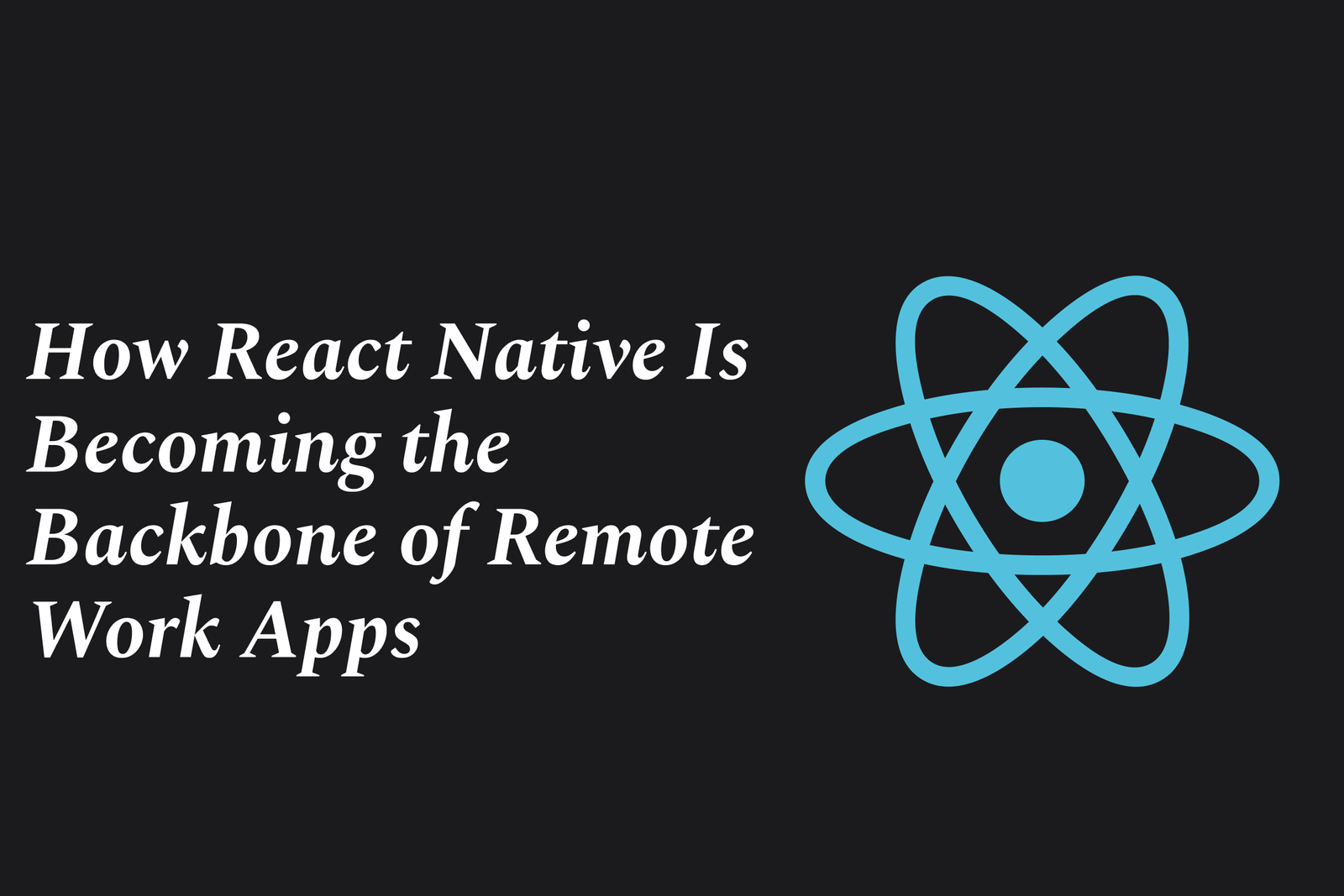How React Native is Becoming the Backbone of Remote Work Apps
React Native is rapidly becoming the backbone of remote work apps due to its cross-platform capabilities, enabling fast, efficient development of seamless mobile experiences on both iOS and Android from a single codebase—essential for connecting remote teams in today’s digital-first world.
How React Native Is Becoming the Backbone of Remote Work Apps
1 ) The Rise of React Native in Mobile App Development
React Native has emerged as a leading framework for building cross platform mobile applications.
Its ability to enable seamless development for both iOS and Android platforms with a single codebase is a major advantage.
React Native's success is largely attributed to its foundation in JavaScript and React, making it accessible to a wide range of developers.
2 ) Essential Technical Skills for React Native Developers
Deep knowledge of JavaScript, including modern ES6/ES7 features, is critical.
Strong understanding of React principles like JSX, components, state, and props.
Proficiency in React Native specific APIs, navigation, and state management libraries such as Redux or Context API.
Ability to handle cross platform development challenges and platform specific code customization.
Familiarity with backend technologies (e.g., Node.js) and integration of third party APIs.
Knowledge of databases like Firebase or MongoDB enhances app functionality.
3 ) Soft Skills Critical to Successful React Native Development
Problem solving and analytical thinking to resolve complex development issues.
Creativity to optimize app performance and user experience.
Effective communication to collaborate with teams and explain technical concepts to non technical stakeholders.
Adaptability and continuous learning mindset to keep up with the rapidly evolving React Native ecosystem.
4 ) Advanced Competencies Enhancing React Native App Quality
Performance optimization skills to minimize load times and ensure smooth animations.
Efficient resource management for memory and network usage.
Strong debugging capabilities utilizing tools like Flipper and Reactotron.
Testing proficiency with frameworks such as Jest and Detox for quality assurance.
5 ) Integration of Native and Hybrid App Development
Knowledge of native iOS and Android development enhances the creation of custom native modules.
Ability to seamlessly integrate React Native components into existing native applications, supporting hybrid app solutions.
6 ) React Native’s Role in Powering Remote Work Apps
The cross platform efficiency and rapid development capabilities of React Native make it ideal for building remote work applications.
React Native supports responsive and consistent user experiences across devices, critical for remote workforce tools.
Its extensive ecosystem and developer community ensure continuous improvement and support, making it a reliable backbone technology.
Summary: React Native's versatility and efficiency have positioned it as the backbone framework for developing remote work apps. Developers equipped with both robust technical expertise and essential soft skills are key to leveraging React Native's full potential in creating high performing, scalable, and user friendly remote work solutions.
https://justacademy.in/news-detail/android-battery-saving-innovations
https://justacademy.in/news-detail/real-time-debugging-tools-for-flutter
https://justacademy.in/news-detail/flutter-layout-grid-system-update
https://justacademy.in/news-detail/flutter-community-meetups-in-2025
https://justacademy.in/news-detail/flutter-for-ar/vr-apps-in-2025
Related Posts
Java supports GDPR and data privacy by enabling secure data handling through encryption, controlled access, and precise data management. It allows developers to minimize PII exposure, ensure data confidentiality, and design workflows that comply with data protection regulations effectively.
Java code quality tools have evolved to include advanced static analysis, integrated security checks, and AI-powered code reviews. These updates help developers detect bugs, enforce coding standards, and enhance security, streamlining the development process and improving overall code reliability.
Java remains a cornerstone in big tech companies, evolving with modern features like records, pattern matching, and virtual threads. Its robust ecosystem, enhanced performance, and growing AI integrations keep it vital for both legacy systems and innovative new projects.
Java and CI/CD pipeline optimizations streamline Java application development by automating builds, tests, and deployments. They improve efficiency through parallelization, caching, and secure secrets management, enabling faster feedback loops and more reliable, scalable software delivery.
Java supports modern cryptography standards through its flexible Java Cryptography Architecture (JCA), enabling integration of advanced algorithms like AES, EdDSA, and post-quantum tools. Libraries like Bouncy Castle offer FIPS-certified, hardware-accelerated implementations for secure development.
Java 23 enhances record patterns by enabling concise, direct destructuring of record components within pattern matching, simplifying type checks and data extraction. This improvement boosts code readability and expressiveness by reducing boilerplate in handling immutable data classes.
Java remains a top choice for mobile app backends, powering scalable, secure, and high-performance server-side solutions. Latest trends include cloud-native microservices, reactive programming, and enhanced JVM optimizations, enabling efficient, flexible, and robust mobile backend development.
Java SE 24 and LTS Java SE 21 offer enhanced features and performance, while Apache Spark 4.0.0 introduces Scala 2.13 support and advanced ML and SQL capabilities. Together, they empower developers to build scalable, high-performance data applications with modern tools.
JUnit 5 modernizes Java testing with a modular architecture, improved assertions, and seamless Java 8+ support. Beyond JUnit, tools like Mockito and AssertJ enhance mocking and assertions, creating a powerful, flexible ecosystem for writing clean, efficient Java unit tests.
Java plays a pivotal role in cloud automation tools by providing a robust, platform-independent language used to build scalable automation frameworks like Jenkins and Selenium, enabling efficient CI/CD pipelines, testing, and orchestration across diverse cloud environments.










